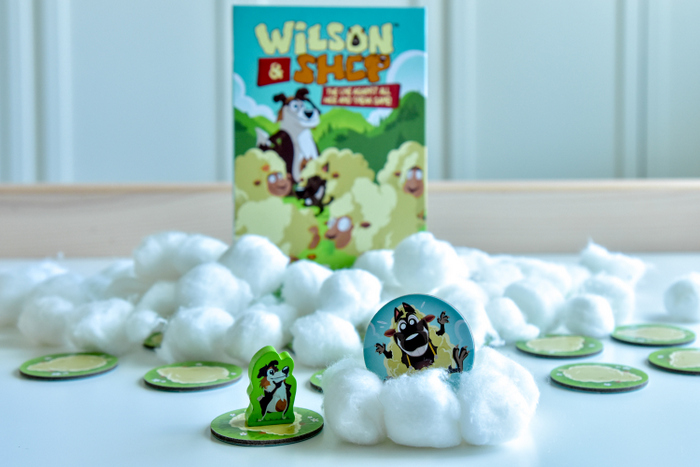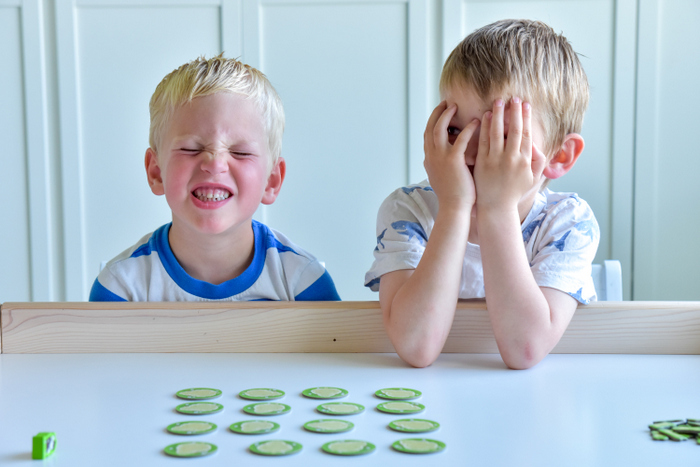
One of the reasons we use so many games for math instruction is that games often require deductive and inductive reasoning, or thinking forwards and backwards about a problem.
Some games, like
Wilson & SHEP, feature these deductive reasoning skills but at the level of younger children. Six years old, in this case! Games don’t have to be super complicated to teach our brains how to think in a more logical/analytical/problem solving way!
Wilson & SHEP is a really fun sheep & wolf themed game, only Wilson, the sly wolf, likes to hide from SHEP and the rest of the flock. SHEP is determined to find Wilson and make sure he doesn’t do anything naughty!
This game has some
cooperative elements but is competitive overall, so it’s a nice mix between teamwork and individual strategy.
Players take turns acting as SHEP looking for Wilson OR as Wilson hiding from SHEP.
The game includes one Wilson tile and 16 sheep tiles. The sheep tiles are placed face down on the game table to form a 4×4 grid. The first player asks everyone to close their eyes while he secretly trades one of the sheep tiles for the upside down Wilson tile. When the rest of the players open their eyes, they still see a 4×4 grid on the table, but one of the tiles is Wilson!
Play goes around the table with players taking different actions depending on whether they’re playing as Wilson or SHEP.
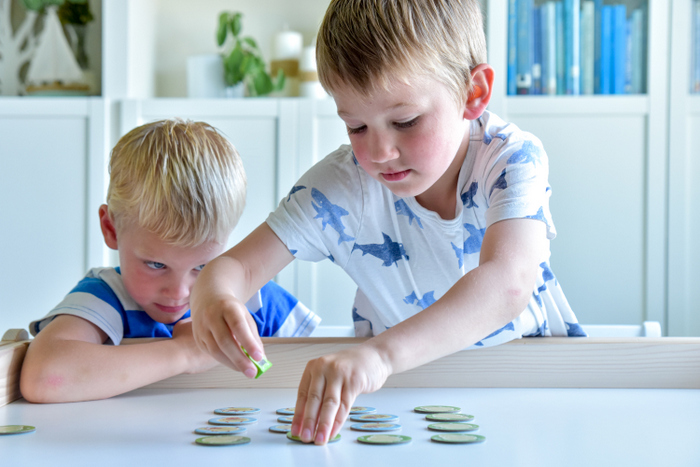
The Wilson player swaps two tiles that are adjacent. The SHEP players (everyone else) move the wooden SHEP playing piece one space in any direction. If SHEP lands on a space that is still face down, the tile is flipped face up.
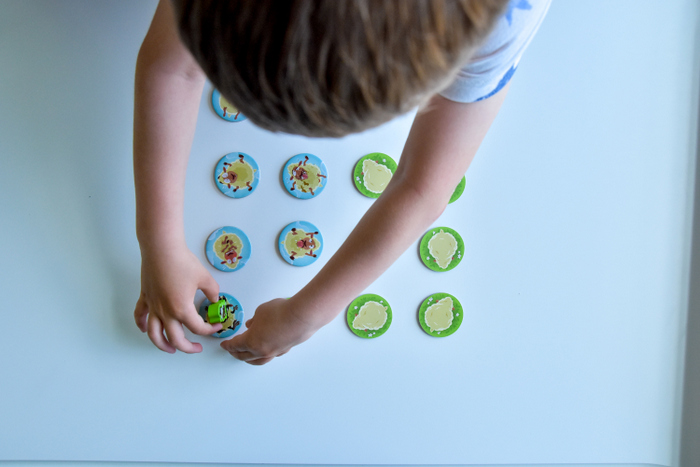
Players continue moving SHEP and flipping sheep tiles while Wilson keeps moving (or not moving…) around the board. The round ends either when a SHEP player discovers Wilson and all Shep players take a reward token OR the 8th sheep tile is turned over without finding Wilson, in which case, the Wilson player gets a reward token.
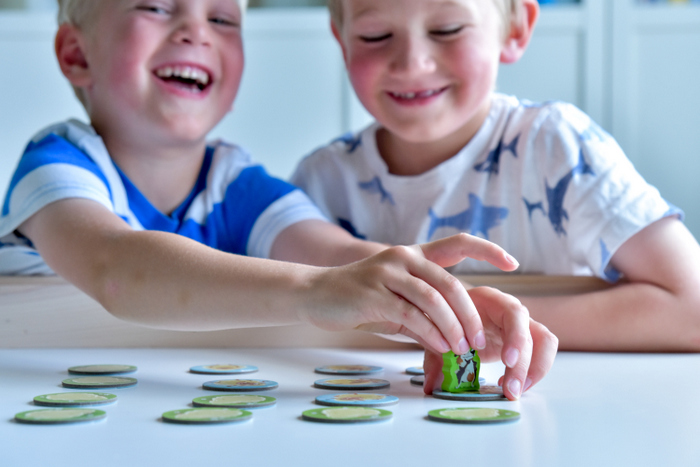
This is a great game of deduction and logic. Even young children can begin to understand these ways of thinking and understanding problems and learn to think in a more analytical way. This is what learning math teaches our brains, and some children do much better learning the skills by playing games.
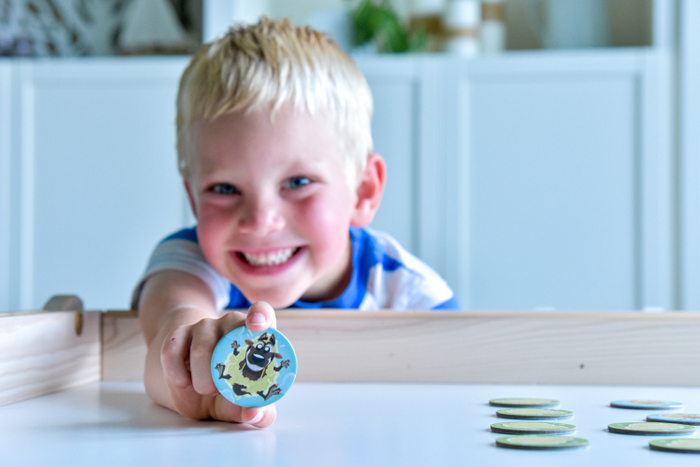
This one is fun to play over and over again during
math time or just for fun. Thanks to
Blue Orange for sharing with us!
